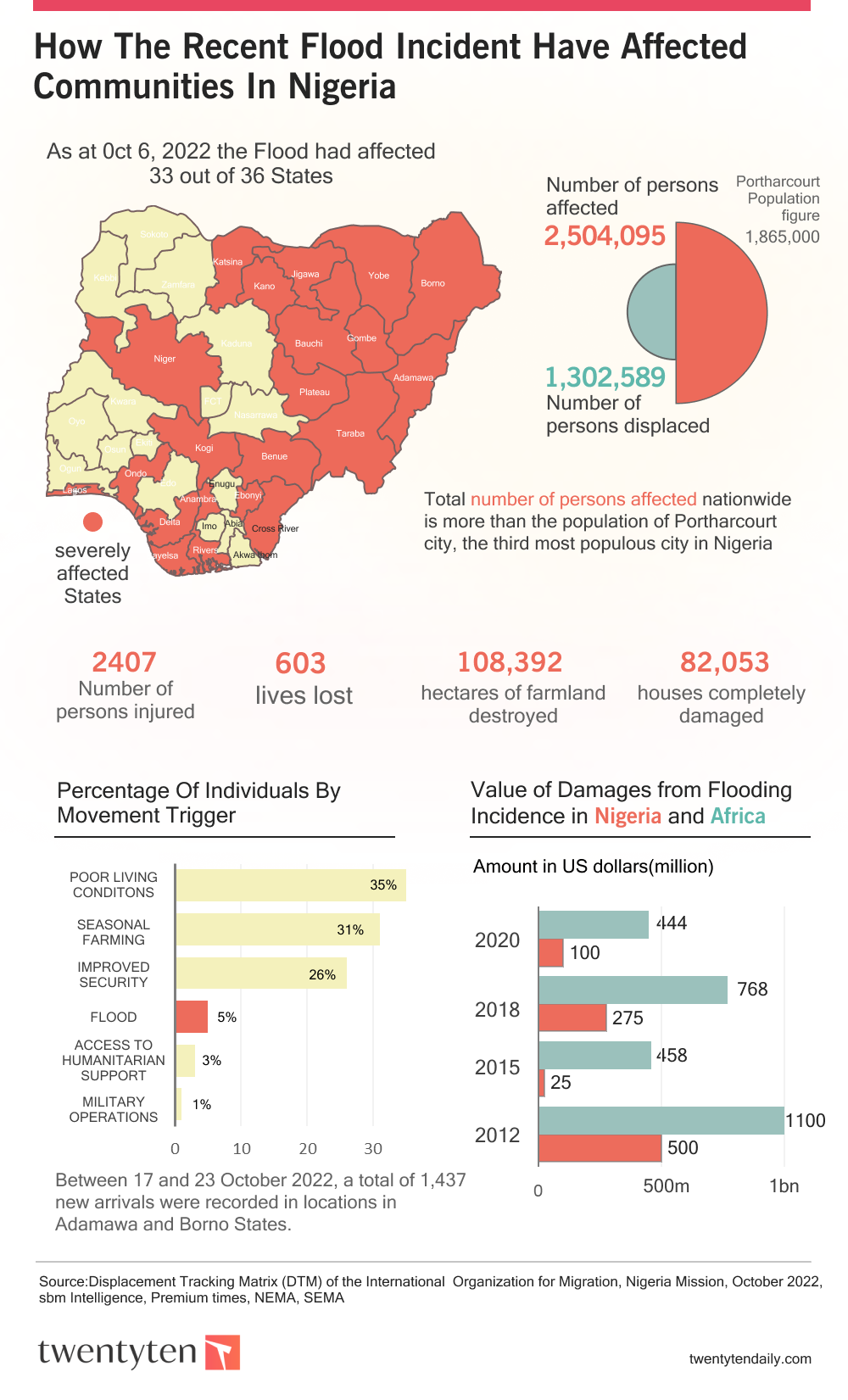Infographics: Mapping Flooding Across West African Countries
Earlier in the year, The African Centre of Meteorological Application for Development (ACMAD) forecasted above-average rainfall in West Africa from June 2022. As predicted, heavy flooding has ravaged West African countries, leaving the destruction of lives and properties in its wake.
A report from the UN’s Office for the Coordination of Humanitarian Affairs (OCHA) shared that countries like Chad, Liberia, Nigeria, Niger, Gambia, Mauritania, Guinea, Cote d’Ivoire, Senegal, Ghana, Mali, and Burkina Faso have been heavily impacted by the floods.

As of 16 August 2022, seasonal rains and floods had affected 731,000 people in West Africa, significantly impacting human life, property, land, and livestock. According to the reports, over 100 people were recorded as casualties, while some 35,000 houses have been destroyed leaving 126,000 people homeless, figures that have since risen in thousands.
In Nigeria alone, the State Emergency Management Agency (SEMA) shared that about 43,155 people across 26 Local Government Areas (LGA) in the BAY states have been heavily affected by floods since the rainy seasons began, while a most recent report shared that 700,000 people were displaced in Bayelsa State as of October 10, 2022.
In Chad, a total of 636 localities across 18 of the country’s 23 provinces has been affected by the flood since the beginning of the season. The flooding has affected over one million people, damaged 465,000 hectares of crops and destroyed 19,000 heads of livestock.
Meanwhile a report from the UN reveals as many as 49,569 people (10,340 households) have been forced from their homes and taken refuge in public spaces in the capital N’Djamena following the overflow of the Chari and Logone rivers which meet in the capital.
Another analysis carried out by OCHA showed that more seasonal rains are expected till the end of October which would further drive up the rate of food insecurity and displacement. Many international bodies are currently offering aid to the affected countries but with economic instability and political issues, many still wonder if the help would get to people who really need it.


